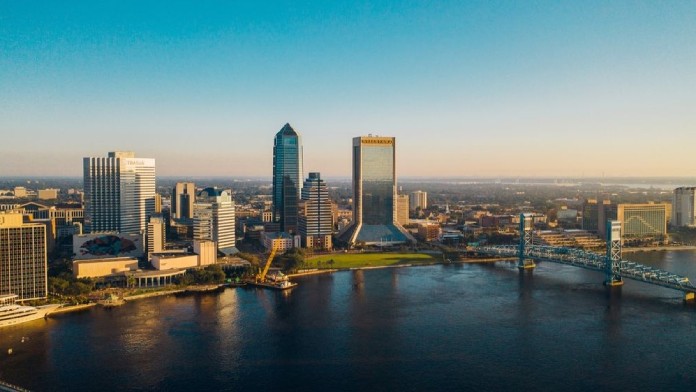Expert Insights
I know drug courts get a bad rep, but I think they’re a good idea. I recently read that 80 percent of people with opioid addiction want to stop or reduce their use, according to a professor at UCLA. It seems that getting entangled in the legal system doesn’t help people engage in care, and people with substance use disorder may benefit from decriminalization and less legal pressure. A great example of this program being successful is former Army vet Matt McKee. With a horrible case of PTSD from deployment in the Middle East and a training exercise injury that left him 90% disabled, Matt struggled with civilian life. He began drinking, which quickly turned into a full-blown dependency on alcohol. After being arrested for some serious offenses, he was offered a chance to go through Veterans Treatment Court instead of jail. He immediately accepted. Today, he credits the program for saving his life. These are the programs I feel we must invest in and expand.
~ Olivia Pennelle
How Expensive is Drug Rehab in Jacksonville?
The costs of drug and alcohol rehab in Jacksonville vary widely and depend on several factors, including:
Type of rehab (inpatient vs. outpatient)
Amenities (luxury vs. standard)
Location (city vs. rural vs. beach)
How drug rehab in Jacksonville is funded (e.g., private ownership or public funding)
Insurance plans accepted
Amenities and features (luxury vs. standard)
Length of your stay
How Do You Pay for Addiction Treatment in Jacksonville?
If you have health insurance, such as private insurance, Medicaid, or Medicare, your insurance plan should provide some coverage for addiction treatments you receive. However, the coverage provided depends on your specific health insurance plan. Some plans offer more coverage than others.
Private Insurance
Substance abuse services are required to be covered by all insurance providers. Contact your provider to confirm specific coverage, including any applicable deductibles and copays.
Florida Medicaid
Medicaid provides health insurance to low-income residents in Florida. It covers services such as outpatient and inpatient substance abuse treatment. However, not all facilities accept Medicaid as a method of payment.
Florida Medicare
The Florida Medicare program offers coverage to residents 65 or older, with disabilities, or with end-stage renal disease or ALS. Medicare can cover the cost of addiction services. However, some rehabs don’t accept Medicare insurance, so it is important to confirm coverage before enrolling in a program.
TRICARE
Florida TRICARE (South Region) is a program funded by the government that provides health insurance coverage for U.S. military personnel, veterans, and their families. TRICARE coverage includes addiction services, such as rehab and medication-assisted treatment.

No matter which Jacksonville drug rehab you consider, ask about your payment and financing options. Many facilities are willing to work with those who do not have private insurance or who have low incomes without the financial means to pay for care.
If you have insurance questions, you can get help today at
800-681-1058
(Who Answers?)
.
How to Finance Addiction Treatment in Jacksonville
Cost should never be a barrier to accessing the care you need. There are options to consider that can help reduce the financial burden of entering Jacksonville drug rehabs, including:
- Grants offered through the Substance Abuse and Mental Health Services Administration (SAMHSA)
- Scholarships and grants
- Sliding scales offered by some facilities and detox centers in Jacksonville (payments based on income)
- Fundraising and crowdfunding for financial support
- Free or low-cost, government-funded facilities
- Monthly payment plans
If you live in Jacksonville and are looking for an accredited addiction treatment center, know that there are plenty of free and low-cost options.
How Does Jacksonville Compare in Alcohol and Drug Use?
Jacksonville is unique in that it has the largest square mileage within city limits in the nation, with over 840 square miles of land.1 However, like so many other U.S. cities, drug overdose deaths, particularly those involving opioids, continue to increase. In 2020, there were 615 overdose deaths involving opioids in Duval County.2 The city has treatment options available to those who are struggling with substance abuse and addiction. There are nearly 30 accredited alcohol and drug rehab centers in Jacksonville that can help prevent overdoses and put you on the road to recovery.3
Over 938,000 people call Jacksonville, Florida home.4 Many Jacksonville residents struggle with drug and alcohol misuse. Addiction, also known as a substance use disorder (SUD), can have devastating effects on individuals, families, and communities.
The 2020 statistics related to drug and alcohol misuse in Duval County (which includes Jacksonville) show how harmful substance abuse and addiction can be:4, 5, 6
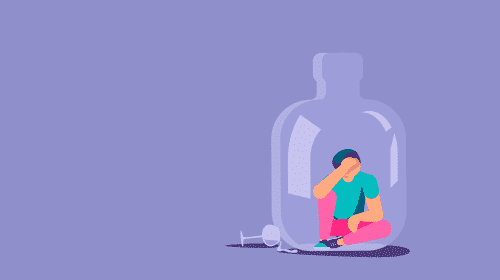
5% of Duval County residents admit to heavy or binge drinking.
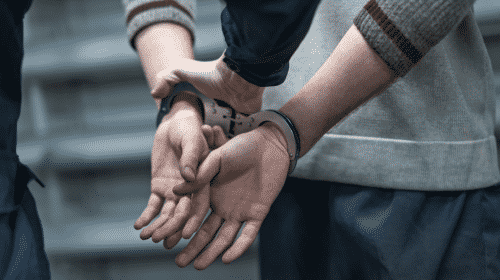
Duval County made 5,210 arrests related to drug use.
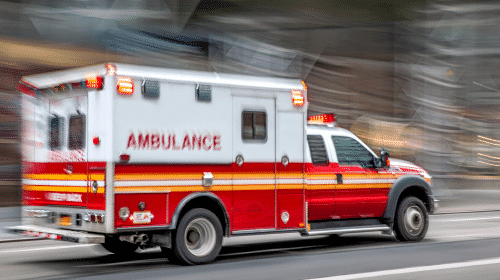
Emergency Departments treated 3,069 drug overdoses.
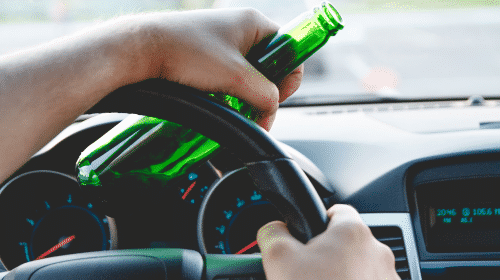
A total of 290 drug- and alcohol-related motor vehicle accidents occurred in Duval County.

Drugs or alcohol contributed to or caused 42 fatal motor vehicle accidents in Duval County.
Although not everyone who uses drugs and alcohol has an SUD, it is a risk factor for developing addiction. Drug and alcohol use also can lead to other serious health consequences. These include but are not limited to:6
- Poisoning
- Unintentional injuries
- Heart disease
- Cancer
- Learning and memory problems
Admissions for Drug Rehab in Jacksonville

In Florida, 104,906 adults and 27,007 children were admitted to drug and alcohol rehab centers in 2018.7

Jacksonville, located in Duval County, saw 4,698 adults and 825 children enter care for drug and alcohol addiction.7
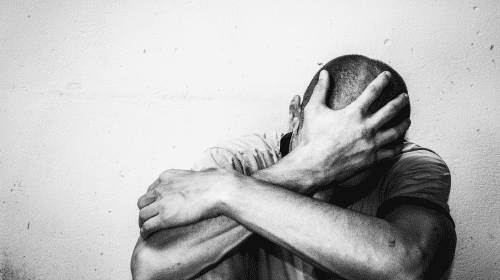
Nearly 62% of addiction admissions were men, with women accounting for 38% of admissions.8

In 2020, there were 725 substance-use facilities in Florida. Nearly 54% were private for-profit facilities.9
Drug and Alcohol Laws in Jacksonville
Some laws in Florida have been enacted to ensure that all individuals who need addiction treatment get the help they need.
Marchman Act: Florida’s Marchman Act is a civil and involuntary commitment statute in the state. It exists to provide voluntary or involuntary entrance into treatment for those who struggle with substance use disorder and to provide means to voluntarily or involuntarily commit those struggling with SUD.18, 19
The Marchman Act was passed to ensure people can safely cope with substance use issues when they may not be in the right state of mind to make sound decisions. While the Act encourages voluntary entry into rehab, it provides a way to have a person enter care involuntarily under specific circumstances.18, 19
Family and Medical Leave Act (FMLA): Under Federal law, employers with 50 or more employees are required to make accommodations for employees who voluntarily choose to attend alcohol or drug rehab.18 These accommodations may include unpaid time off and/or permission to use sick leave or vacation time without the risk of losing their job.
FMLA states that employees are entitled to 12 work weeks off during 12 months for health conditions that make the employee unable to perform the functions of their job, including seeking addiction treatment.20
Treatment Opportunities for Individuals Convicted of Non-Violent Crimes: Known as drug court, Florida offers two programs for diversion from jail for people with substance use disorders who have been convicted of non-violent crimes.21 Both of these programs require a minimum of one year in care to break both the cycle of addiction and crime. Individualized services are provided to help the individual return to their community as productive members of society.
The Pretrial Intervention Program is an alternative to traditional incarceration for first-time, non-violent criminal offenders charged with the purchase or possession of a controlled substance and/or other substance abuse-related offenses.21
The Diversionary Treatment Program (DTP) is designed to divert adjudicated felons with substance-related conditions from returning to prison.21
Florida Good Samaritan Overdose Prevention Law: Florida’s Good Samaritan law was created to decrease fatal overdoses from drug and alcohol use. The law encourages individuals who witness or experience an overdose to call 911 for emergency care and ensures protection from any drug-related charges, arrests, or convictions.22
This law helps ensure that those who need help after using drugs and alcohol can get it without fear of repercussions from law enforcement. If you or someone you are with has overdosed, call 911 immediately.
You will find numerous options for accredited alcohol and drug rehab centers in Jacksonville. However, having this many choices can be difficult. Call
800-681-1058
(Who Answers?)
to get the help you need, today.
Choosing the Right Level of Care
Medical Detox: When you stop or dramatically reduce using drugs and alcohol, you likely will experience withdrawal symptoms. Medical detox tapers you from drugs or alcohol while minimizing the effects of withdrawal.
Inpatient: If you attend an inpatient drug and alcohol program, you will live at the facility for the duration of your stay. You may stay anywhere from 30-90 days, depending on your needs and the recommendation of the medical professionals providing care.
Partial Hospitalization Programs (PHPs): PHPs offer many of the same services as inpatient care, but you return home during non-treatment times. This type of care often serves as a bridge between inpatient and outpatient care.
Intensive Outpatient Programs (IOPs): IOPs are a step down from PHPs. Counseling occurs several days a week while you spend the rest of your time at home, at work, or fulfilling other obligations.
Standard Outpatient: Standard outpatient care is the least intensive option. It involves a couple of hours of treatment each week. This program is best for Florida residents with strong support networks and a high level of motivation.
Aftercare: Aftercare, or relapse prevention, starts after you complete your rehabilitation program. Support services such as 12-step groups and sober living homes are available.
Medications for Drug and Alcohol Addiction
While in treatment, you may be prescribed medications to help you manage both your withdrawal symptoms and support your sobriety.
Depending on the substance(s) you have used, these medications may include:16, 17
Acamprosate: This medication reduces cravings for alcohol and post-acute (long-term) withdrawal symptoms such as anxiety and insomnia.
Disulfiram (Antabuse): Drinking alcohol while taking this medication causes unwanted symptoms that mimic a severe hangover. This helps reduce the craving to drink.
Naltrexone (Revia/Vivitrol): Used to treat both alcohol and opioid addiction, this opioid agonist binds to receptors in the brain and blocks the effects of alcohol and opiates.
Methadone: This opioid agonist reduces withdrawal symptoms and cravings. It helps your body feel more comfortable without the euphoric effects of opioids.
Buprenorphine (Buprenex/Butrans): A partial opioid agonist, this medication reduces cravings and withdrawal symptoms without producing a euphoric high.
Buprenorphine/Naloxone (Suboxone, Zubsolv): Treats opioid dependence or addiction. Buprenorphine reduces withdrawal symptoms and cravings, while naloxone deters misuse and can reverse opioid overdose.
Mental Health Medications: If you have a dual diagnosis, medications such as antidepressants, anti-anxiety medications, and mood stabilizers may be prescribed.
What Are The Types of Addiction Therapy Used in Rehab?
Cognitive Behavioral
Cognitive behavioral therapy (CBT) helps you to explore the consequences of addiction and change unhealthy behaviors. You can expect to take part in 12-24 CBT sessions. These sessions will equip you with strategies to help you avoid relapse.13
Dialectical Behavior
Dialectical behavior therapy helps you manage cravings using mindfulness. This intervention has been used with spiritual, cultural, and traditional practices. You can expect dialectical behavior therapy to be effective in treating your addiction. 13
Motivational Enhancement
Motivational enhancement therapy is a type of counseling that helps you deal with uncertainty about stopping drug and alcohol use. Your counselor will help you recognize discrepancies between your unhealthy habits and goals. This approach helps to prevent relapse and reduce drug and alcohol use.13
Contingency Management
Contingency management uses rewards and incentives to encourage you to change your behavior. You can expect better outcomes if you combine contingency management with CBT and motivational enhancement therapy.13
Group
Group therapy is a counseling approach that helps you develop the right skills for healthy behavior. You can expect your group to consist of five to 15 people.24 Your group members may be a support network and a sounding board and can offer insight into how others have managed and treated their addiction.
Family
Drug and alcohol use can affect your entire family. Family therapy works with everyone in your family to help resolve communication issues and curb improper influences and unhealthy behaviors.13
Should You Travel for Drug and Alcohol Rehab in Jacksonville?
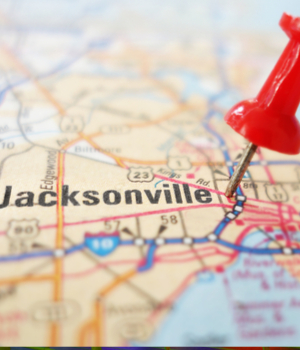 Many individuals travel to Jacksonville to access drug and alcohol addiction treatment. There are many reasons for this, such as:
Many individuals travel to Jacksonville to access drug and alcohol addiction treatment. There are many reasons for this, such as:
- They live in a nearby area or state that does not offer the program they need
- They want a change of environment
- They want to enjoy the benefits of sunshine and prefer to be close to the beach
- They have family or friends in the area who can provide support
- Their insurance covers drug rehab in Florida
If you are not a Jacksonville resident and travel to the city for care, this change in scenery allows you to escape any triggers at home that may make you crave drugs and alcohol. When you travel to Jacksonville for treatment, you are spacing yourself from the usual environmental stresses you face. This means stepping away from friends or family who normally drink or use drugs with you and getting a break from other aspects of home life that can be stressful or triggering.
Traveling to alcohol rehab centers in Jacksonville allows you to focus on what truly matters: your recovery and ongoing sobriety.
Resources
- JAX Facts. (n.d.). Visit Jacksonville.
- FROST» Florida Drug-Related Outcomes Surveillance and Tracking System (n.d.). https://frost.med.ufl.edu/frost/
- FindTreatment.gov. (n.d.). FindTreatment.gov.
- World Population Review. (2022). Jacksonville, Florida Population 2022 (Demographics, Maps, Graphs).
- Florida Department of Health. Bureau of Community Health Assessment. Division of Public Health Statistics and Performance Management. (2022). Substance Use Dashboard: Overview. Florida Department of Health.
- Florida Department of Health. Bureau of Community Health Assessment. Division of Public Health Statistics and Performance Management. (2022). Substance Use Dashboard: Risk Behaviors. Florida Department of Health.
- Florida Department of Health. Bureau of Community Health Assessment. Division of Public Health Statistics and Performance Management. (2022). Substance Use Dashboard: Consequences. Florida Department of Health.
- Florida Department of Health. Bureau of Community Health Assessment. Division of Public Health Statistics and Performance Management. (2022). Substance Use Dashboard: Report. Florida Department of Health.
- National Institute on Drug Abuse. (2020). Addiction and Health.
- Florida Department of Health. Bureau of Community Health Assessment. Division of Public Health Statistics and Performance Management. (2022). Substance Use Dashboard: Prescriptions and Treatment. Florida Department of Health.
- Center for Behavioral Health Statistics and Quality. (2022). Quick Statistics: Treatment Episode Data Set for Florida (2020). Substance Abuse and Mental Health Services Administration.
- Center for Behavioral Health Statistics and Quality. (2019). National Survey of Substance Abuse Treatment Services: 2019 N-SSATS Florida. Substance Abuse and Mental Health Services Administration.
- (2021). America’s Best Addiction Treatment Centers 2021.
- Center for Behavioral Health Statistics and Quality. (2019). 2019 N-SSATS Table 6.28a: Types of payments accepted by facility, by state or jurisdiction. Substance Abuse and Mental Health Services Administration.
- National Library of Medicine. (2022). Opiate and Opioid Withdrawal.
- National Library of Medicine. (2022). Alcohol Withdrawal.
- Center for Substance Abuse Treatment. (2015). Detoxification and Substance Abuse Treatment. Treatment Improvement Protocol (TIP) Series, No. 45. Rockville (MD): Substance Abuse and Mental Health Services Administration (US).
- National Institute on Drug Abuse. (2010). Comorbidity: Addiction and Other Mental Illnesses.
- Winslow, B. T., & Hebert, M. (2016). Medications for Alcohol Use Disorder. American Family Physician, 93(6), 457-465.
- Substance Abuse and Mental Health Services Administration. (2019). Medications Used in Treatment.
- Connecticut General Assembly Office of Legislative Research. (2012). Florida law on substance abuse treatment.
- Pasco County Clerk. (2015). A petitioner’s responsibilities under the Marchman Act.
- Department of Management Services Florida. (n.d.). Family and Medical Leave Act.
- Broward County Sheriff’s Office. (2020). Department of Community Programs.
- The Florida Legislature. (2021). Florida 2021 Statutes.

